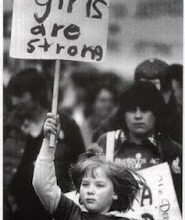By Peter Mekers

In The Netherlands we have a long history of social housing organisations since 1852. Just under a 100 years later – in 1950 – a law was passed to introduce Works Councils, or ‘Ondernemingsraad‘ (OR) as it is called in Dutch.
Nowadays all Dutch organisations with 50 or more employees, are obliged to have such a Works Council. This means that most social housing foundations or societies have such a council in place, and organisations with 10-49 workers must organise some other form of Workers’ Representation.
Governance on the Dutch Social Housing organisations is quite heavy both internally and nationally:
There is the Executive Board that is being overseen by the Supervisory Board, in Dutch often named as ‘Raad van Toezicht’ or ‘Raad van Commissarissen’. The government checks the organisations via the ‘Autoriteit Woningcorporaties’, and all loans are governed by the ‘Waarborgfonds Sociale Woningbouw’ and then there is the Works Council.
What is a Works Council and what does it mean for a Housing Association?
A Works Council is special; it is the only one that is formed by workers who have their day job in that organisation. All employees who work for at least one year for that organisation can candidate themselves for the election into the council. This also includes people who are hired from an outside firm, or people with temporary contracts; as long as they are working for the company for at least one year at the date of the start of the elections.
You may think that a Works Council is a sort of mini union within the company, but the role is different: the task of the Works Council is to represent the interest of the workers to the board but to also take in consideration the business interest of the proposals. They are a sort of watchdog on the continuity of the organisation.
By law, some decisions by the board must be put trough the Works Council, either for advice or for consent. When a board carries out a decision without doing that, the Works Council can suspend that decision for a month and go to a special court the ‘ondernemingskamer’, to let a judge check if the procedures outlined in the law were obliged. If not, the board can not carry on with the plans.
This whole structure ensures that a board has to consult workers first before executing plans that have a vast influence on the workers. Because most people working in Social Housing chose that profession because of their beliefs in helping to form a better society, the Works Council consists of workers who not only look at the profitability of a plan. Their input on a plan adds valuable insights to create a long lasting positive effect. Rather than a short term win, with possible long term negative side effects.
An example:
A new manager proposes to the board to close the mail room, because other departments can also handle their own incoming and outgoing mail. This plan seems to be efficient: it will save money: no need to keep staff on the payroll for mail.
However, that mail room did have an importance in the uniform way of archiving documents. Left to the separate departments, they would all develop their own way that suits their specific archiving need. Very efficient.
Unfortunately a couple of months later the social workers would find out that for court cases, they could not access the documents they needed in a uniform way. They had to access different archive software, find out that some things were not recorded anymore and were left with a challenge in rounding up the evidence they needed for their case. Because it was of no interest of department A to record some things, later on department B had a problem.
The Works Council had foreseen that possible problem and gave the board the advice to first create a uniform policy on information management and identifying the risks of transferring responsibility of record keeping and archiving to other departments. This did cause months of delay in closing the mail room, but in the end it was best for the continuity of the organisation. Such inside knowledge and the chance to voice your concerns on plans directly at the board level adds tremendous value.
A good functioning Works Council is not a hindrance, but instead adds to the social conscience of the organisation. It helps those on the front line to voice their opinions and insights to the board members. Without filtration by the management.
To find out more about Workers representation and how you could use it to your benefit, please read the English documentation:
https://www.ser.nl/-/media/ser/downloads/engels/2019/constructive-employee-participation.pdf
(A how to)https://www.ser.nl/-/media/ser/downloads/engels/2019/works-councils-act.pdf
(The translated Dutch law)https://business.gov.nl/regulation/works-council-staff-representation/
(explanation by the Dutch government for foreign businesses)
About the Author
Peter Mekers is Chair of the Works Council at Staedion, a social housing foundation in The Hague, The Netherlands which lets out aprox. 36,000 homes and 6,000 other units including commercial units and parking spaces. He is also the Secretary of the Board for the Netwerk Roze FNV, a LGBTI Network within the largest Dutch union (FNV).



